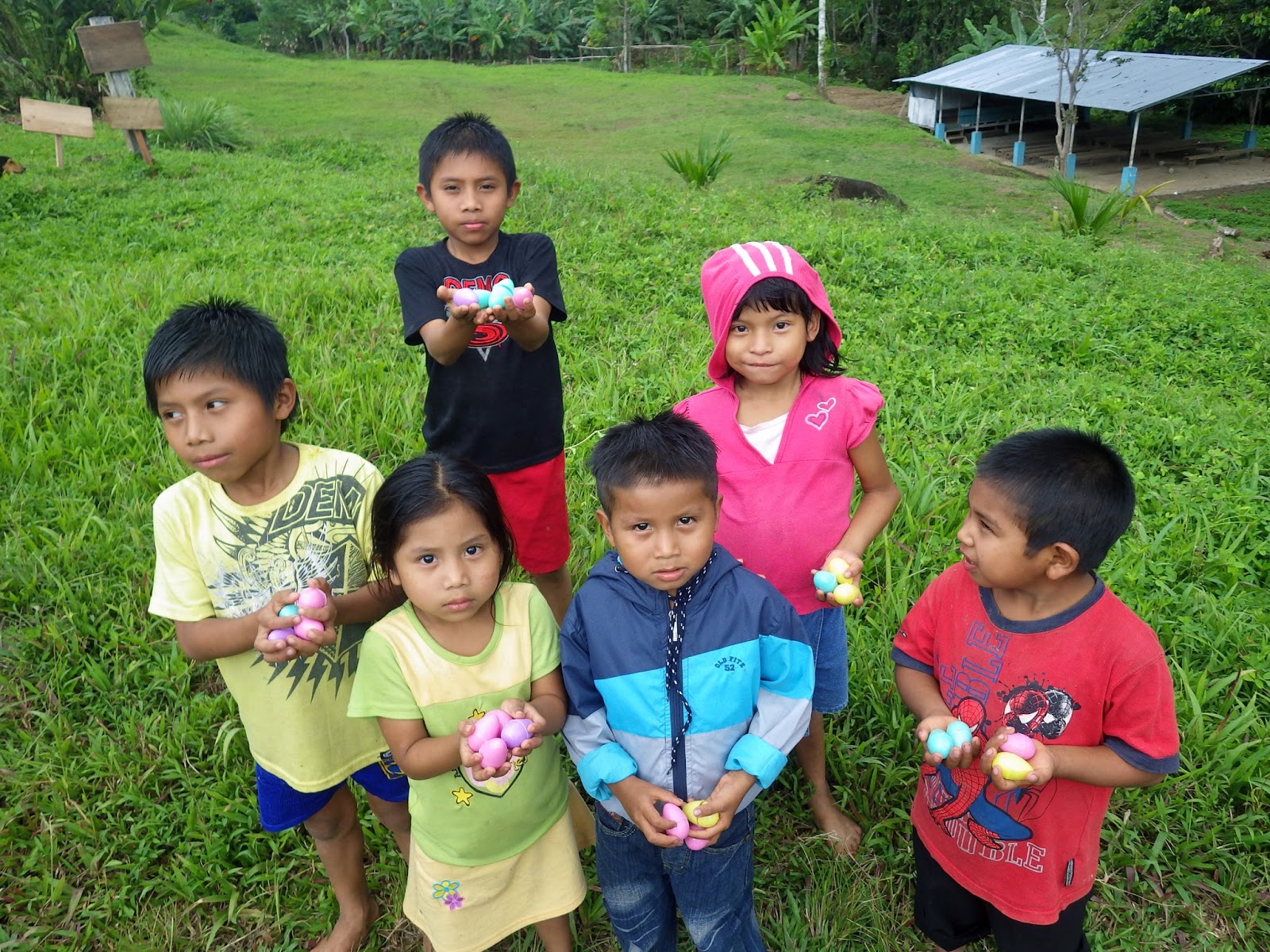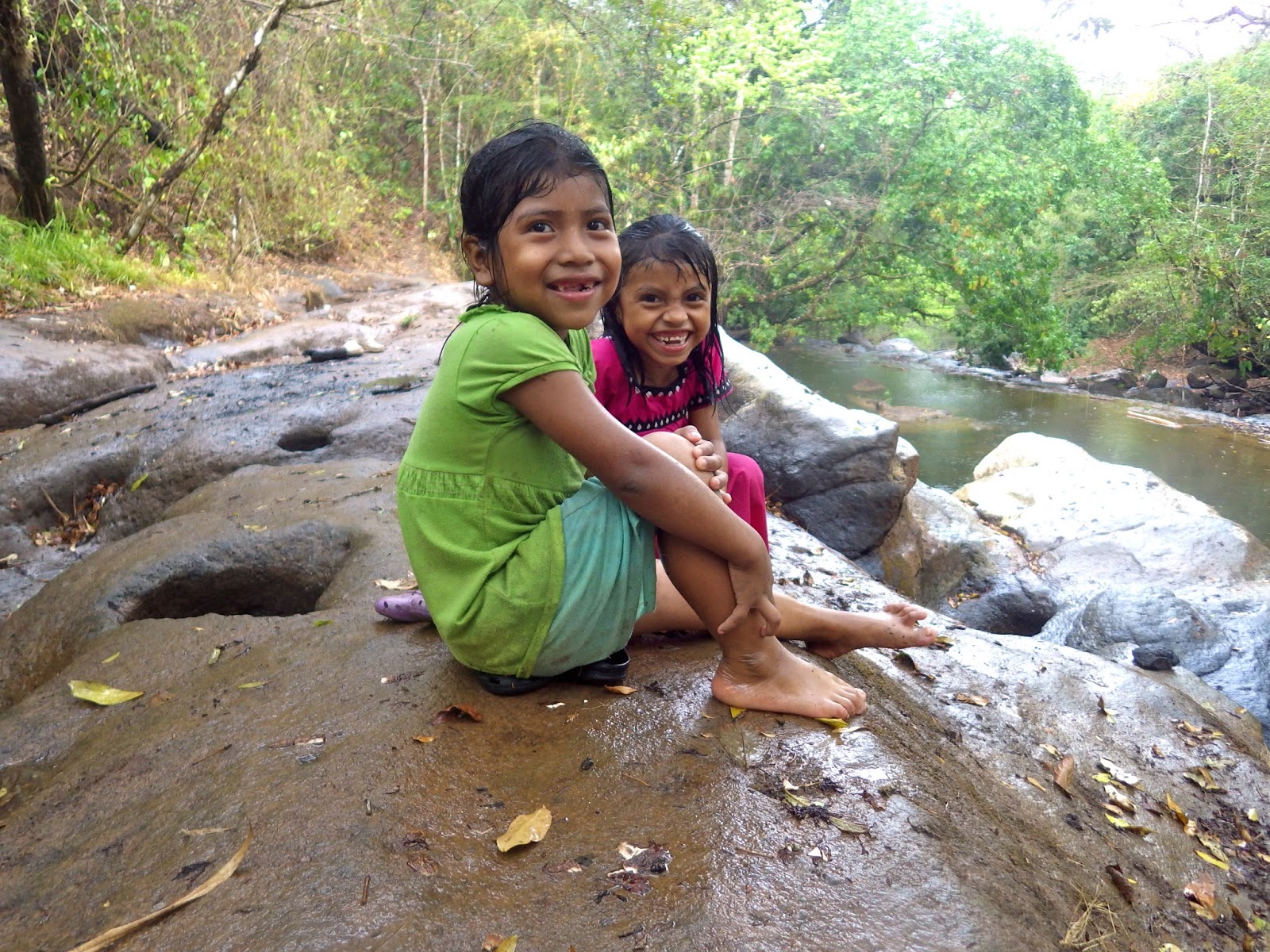And then you turn off the paved road and start your hike...
I don't know anyone who would consider Peace Corps easy, but in our efforts to paint a fun, exotic picture for our friends and family back home, I don't think we're as willing to admit how hard it really is. The other day I was talking to a close friend from home, and upon me saying how depressed I was during the first few months, she responded with, "Wow, I never realized that. I guess I just always saw your awesome pictures and assumed you were loving it."
And it's not her fault for thinking that. Like many volunteers, I focused on the exciting parts of my life and downplayed the challenges that had me calling my parents in tears. I think hearing both sides of the experience is really important- not just for future volunteers, but also for the general public. If you've been following my blog, you've heard a little about the hard parts- like amoebas, skin infections, and getting over the culture shock, but here's the rest of the story.
Arriving in country is slightly overwhelming but incredibly exciting. Everything is new and different, and Pre-Service Training is packed with activities, trips, and obviously, training. During this time, usually the first two-three months, you're surrounded by fellow trainees who are experiencing all of the same challenges and excitements as you are, as well as support staff who are physically present to help you with every aspect of life in a new country.
Then, overnight, it all changes. You arrive in your site and are suddenly the only American, the only English speaker, and certainly the only one going through such a drastic life change. Your boss is not present, you have no coworkers so to speak of, all of your fellow trainees/new volunteers are off in their own sites, and you feel completely alone. Instead of waking up to a full schedule of training, work, and play, you have a calendar of absolutely empty days, weeks, and months ahead. You're overwhelmed by all there is to do, but even more so by how little you know how to do.
You're living with a family you just met, and life with them is completely different than anything you're used to. If you're lucky, you will get new and interesting food each day, and if you're not you might lose 15 pounds and eat nothing but boiled green bananas (I fell under the later category). Your new diet may leave you sick or just "off" and the water may or may not be sanitary.
You'll either call home crying or not talk to your family for weeks because you know their voices will bring you to tears. Things that you never gave a thought to before- like cooking or washing clothes- suddenly become a challenge, and things that would be hard even under the best circumstances- like the death of a family member or beloved pet, threaten to push you over the edge.
In the face of all of this, you give your best, since your only other option of crying to yourself alone in your dark, foreign, potentially moldy room only makes you feel worse. As you have nothing else to do, you spend a lot of time attempting to get to know your new neighbors. Even with a decent language level, you may struggle the first few weeks, and even if you're fluent, you still feel awkward at these constant introductions and attempts to gain trust and friendship. For those first few weeks, you fall asleep at night exhausted, lonely, and ready to be done with the day, and wake up stressed out about still not having friends, not having a full agenda, and having absolutely no idea what you're doing.
Then, slowly but surely, it starts to get better. You'll have little moments in which you start to bond with your community, you'll host your first event (and maybe even get a great turnout), and your boss may even read your blog and let you know that you're doing pretty okay. Poco a poco, you're no longer stressed at the sight of an open calendar and you'll even learn how to wash clothes on a rock and make delicious food over a fire. You'll gain back the weight you lost over those first few weeks (or vice versa) and your new friends won't hesitate to point it out. But instead of feeling offended, you'll smile and joke with them, and then go to sleep at night without many of those feelings of dread stress. It will take time, and it will never be easy, but you'll grow to appreciate your campo life and the people that make it worthwhile.
































